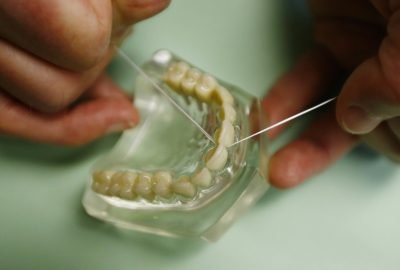Maintaining oral health means following advice so familiar it’s almost boring: Brush for two minutes twice a day with a fluoride toothpaste. Clean between teeth once a day with floss, a small brush or pick. And visit your dentist regularly. (The American Dental Association, commenting on recent reports that evidence doesn’t support flossing, says that doesn’t mean such cleaning isn’t effective.)
Your goal is to clear away the bacteria-laden plaque that causes gum disease and cavities, said Jane Atkinson, director of the center for clinical research at the National Institute of Dental and Craniofacial Research.
The effects of not taking care of your teeth and gums are hardly boring and, in fact, very serious: Advanced gum disease can lead to tooth loss, infected teeth and gums, and make it difficult to chew, swallow and maintain a healthy diet, she said.
[Is there a link between gum disease and cancer, dementia, stroke?]
The scientific jury is still out on the exact role that gum disease plays elsewhere in the body. But if you have conditions such as diabetes, coronary artery disease, stroke and at-risk pregnancy, you may qualify for enhanced benefit coverage from your dental or medical insurer. This includes extra cleaning and procedures — known as scaling and root planing — that dig deep to scrape away nasty plaque.
“It’s common that carriers will offer additional periodontal cleaning for one or more of these health conditions,” said Evelyn Ireland, executive director of the National Association of Dental Plans. Dental insurers, led by companies including Cigna and Aetna, have been offering these enhanced benefits for more than a decade, relying on data on saved costs and improved health instead of waiting for strict scientific evidence about the particulars of gum disease. “Why do we have to understand whether it’s causal before we do anything about it?” Ireland said.
“If you are a patient with one of these diseases and you haven’t been to the dentist, try to go to the dentist,” Atkinson said. For example, she said, consider the repercussions of not being able to chew properly for someone with diabetes or heart disease. “We know that maintenance of a healthy diet is essential in helping to control both diabetes and cardiovascular diseases,” Atkinson said.
Credits:

